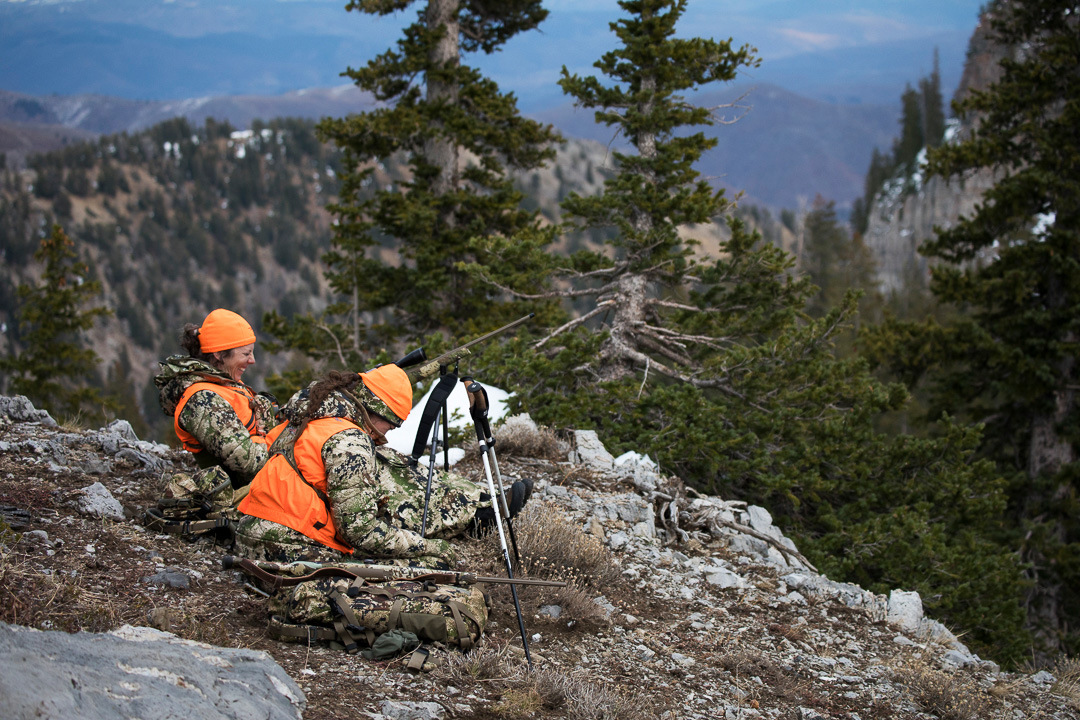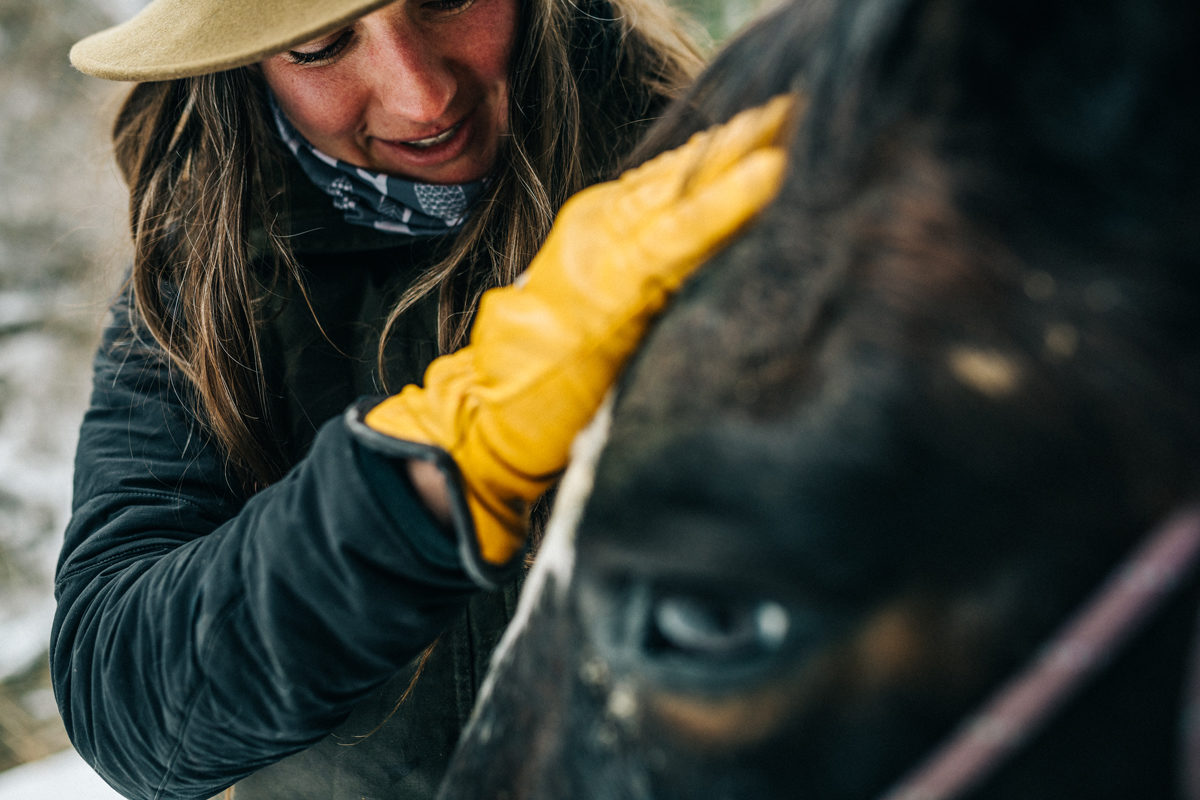Modernized BLM priorities for land disposal and exchange will benefit hunting and fishing access
Acting Interior Secretary David Bernhardt today directed the BLM to prioritize public access in decisions regarding the disposal and exchange of BLM public lands.
Bernhardt signed Secretarial Order 3373, Evaluating Public Access in Bureau of Land Management Land Disposals and Exchanges, to help ensure that BLM public lands, no matter how small, remain in public hands if they are highly valued for outdoor recreation access.
“Sportsmen and women across the West will benefit from this Interior Department action to sustain and enhance recreational access to BLM public lands,” said Whit Fosburgh, president and CEO of the Theodore Roosevelt Conservation Partnership. “In some places, there are small parcels of BLM land that serve as the only means of nearby access to hunting and fishing or as the only access points to adjoining public lands managed by other agencies. The Secretarial Order will ensure that key parcels are valued for this recreational access and help keep these lands in the public’s hands.”
“We are glad to see that recreational public access was identified as a top priority for the BLM when they make land disposal and exchange decisions,” said Howard Vincent, president and CEO of Pheasants Forever and Quail Forever. “We believe this decision will bring great benefits for hunters by sustaining access and opportunity on federally owned lands. We thank the agency for their stakeholder outreach leading up to this announcement and for taking sportsmen and women’s interests to heart.”
For the past 40 years, the BLM has been required to identify small tracts of land available for sale or disposal. Until today, this frequently included public lands that offer important recreational access. As a result, the BLM has been identifying for disposal remote, yet high-value, public land parcels, including tracts in Montana Fish, Wildlife & Parks’ famed big game hunting Region 7 and at the base of the Bighorn Mountains in Wyoming.
Today’s guidance means that the agency now must consider public access when determining the value of these isolated parcels of public lands. Further, in the event that a disposal or exchange might affect public access, the order provides additional direction to help retain that public access or makeup for any losses of access through an associated acquisition.
“We express our sincere thanks to the Department of Interior for unequivocally recognizing the value of hunting and other recreational access when making crucial decisions regarding ownership of our federal lands,” said Brent Rudolph, director of conservation policy for the Ruffed Grouse Society and American Woodcock Society. “The conservationists that make use of these lands benefit greatly, and their activities in turn support the management of our natural resources and financial health of many rural communities.”
A recent study led by the digital mapping company onX and TRCP found that 9.52 million acres of public lands in the West are inaccessible to the public without permission from private landowners. Small, isolated parcels of BLM land often provide the only means of access to larger parcels managed by states or other federal agencies that would otherwise be similarly “landlocked.” Because of today’s directive, the BLM must now weigh such potential implications in any decision regarding the disposal or exchange of these types of parcels.
“GPS technology has revolutionized the way that Americans use their public lands, making it easier than ever before for the average outdoor enthusiast to identify and access smaller, out-of-the-way parcels,” said onX founder Eric Siegfried. “As a result, there’s been a growing awareness in recent years that landlocked or inaccessible public lands represent lost hunting and fishing opportunities for the American people. We applaud the Department of the Interior for reaffirming the importance of public land access, and for taking this step to ensure that all Americans can take advantage of the incredible experiences offered by our nation’s public lands.”
“Access is one of the most significant priorities for hunters and anglers and a real concern for new sportsmen and women in particular,” said John Gale, conservation director for Backcountry Hunters & Anglers. “Our public lands and waters provide access to all regardless of stature. We thank the administration for their leadership and foresight in elevating consideration for lands that not only support fish and wildlife habitat but provide access and opportunities to ensure that our outdoor traditions endure.”
See the TRCP’s fact sheet on BLM public lands identified for disposal.
Photo: Jeff Clark/BLM







Outstanding. For too long, adjacent property owners have kept public land for themselves. I can see where someone would purchase one of these “access” properties for their own benefit. Keep up the good work.
So what is interior doing to gain us access to the 9.5 million acre as of landlocked public lands? After reading your report it sounds to me like they are selling these landlocked parcels, just maybe not the ones that have a small access point. I want no lands sold for any reason and access to all of it. Please pass it on!
This is good and bad. The only problem I foresee is the death and destruction of MORE federal lands by tourists that have no love or respect for mother nature. To many times Ive seen the trash and destruction left behind by IDIOTS. I personally don’t think most people deserve to access these hidden gems. But, oh well, you will see. Soon there will be no places that are wild and free, and we will be talking about shutting the areas down again.
I really hope that this potential for making “our” land accesible coms to fruition. The land swap or selling is something that needs more careful considerations, simply because it may be a more important tract than what the Interior sees.
My hope is that “modernized” isn’t simply a euphemism for “motorized”. I’m all for better access for sportspersons, paddlers, hikers and the like but the last thing wildlife need is an increase in off-road vehicle traffic degrading breeding, foraging and verwinterng habitats. Done right, done smart and done with the needs of wildlife front and center, this initiative can be a very good thing. Done the opposite way? No good for anyone or – anything – in the long run.
In South Eastern Arizona ranchers and land in investors have closed off many miles of national forest by gating a small section of private land. I’ve always supported ranchers and multi use public land. Over the last 50 years of continuing closures I think that I would like to see public access to public lands a requirement for grazing rights on public lands.